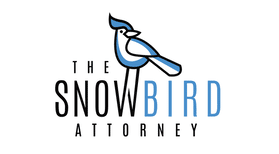
Writing became my therapy after surviving a crash. My personal journey starts much before the motor vehicle accident but to keep the things in order I will start from there. I started writing as a means of therapy – it proved to provide some relief and I would encourage all of you to start doing some writing and journaling is a good way to start. It provides a creative outlet and gives you something that you have control over. Keep it to yourself if you can but remember to talk to others about what you write as this is healthy.
I am a determined problem solver. When rehabilitation did not work out for me due to my speech, vision, balance and coordination difficulties, I started to analyse rehabilitation. As writing became my therapy, my book, “The Journey Tips and Tales revolves primarily around the first awareness scenarios after awakening from a coma. It introduces the reader to their new surroundings and gives them some frame of reference for the process that is about to unfold.
My second book, “The Journey Continues” provides some additional insights on how the survivor can develop their own thinking. This really starts when formal rehabilitation is over (if it existed) and the survivor needs to plan their life for their self and at their own pace. This book attempts to bring the principles of rehabilitation into the sphere of possibility for the average survivor. It gives easy to follow steps and is the gateway to a lifetime of free therapy.
Curiosity Can Be Nurtured
Resilience has many steps to it. First you have to have a little bit of resilience to prime the pump if you will. Once you can do basic things you can begin to start developing some curiosity. There are many things to be curious about at first. The professionals need to embrace this even as I had one therapist whom I would always have good discussions about brain injury rehabilitation. This started my thinking processes again. Just analyzing and evaluating in a quiet calm and relaxed manner did me a world of good.
Then real therapy started and it was all about fulfilling the professionals’ desires – almost regardless whether it was good therapeutically for you. This ability to question the basic practices of the professionals is lacking until you get out of their paradigm a bit and reflect back on it with a broader understanding of what the process is all about. Curiosity can be nurtured about many other things though. Physical device problems are one big area, another is the culinary arts.
Becoming Resilient
Learn to ask questions. This also needs to be done during therapy – what will this help me with? Why do I need to do it this way? This is not singular process though. One area of curiosity leads with drive and problem solving to resilience in that area. Another area of curiosity leads to resilience in this area – and so you become resilient following many areas of curiosity and follow through to end up with that most desired result – resilience.
The curious mind is active and open to alternate ideas as well as broadening one outlook by giving a different perspective of reality. The resilience definition used for these purposes is “The art of returning to the previous existence”. My last piece of advice is to force the conversations as they need to happen. And remember never, ever give up.
Submitted by Stephen Gregory, M.A.Sc.
Stephen is a survivor of a very serious motor vehicle crash resulting in a level 3 on the Glasgow Coma Scale. His recovery has challenged his beliefs and his strength of character to the maximum possible. For more information or to order one of his books please visit: www.afterabirehab.com. Stephen is also a member of Crash Support Network and we thank him for sharing his inspirational story with us.
This story is also featured in our 2020 Spring Issue of Sharing our Recovery
Are you interested in sharing your story? We want to hear from you! Send us an email at: info@crashsupportnetwork.com and it may be published on our website or in our quarterly newsletter.
The Crash Support Network is a unique website consisting of an online support group, a Crash Survivor Blog written by a survivor, our Sharing Our Recovery Newsletter, informative articles and a Virtual Crash Memorial. Our website is based on relationship-building and puts the needs of survivors first by creating a helpful resource for victims and survivors of motor vehicle crashes.



